How the French vacation
One of my oldest friends invites us to join her family in the Gorges de Tarn, where I ask her for an impossible favor.
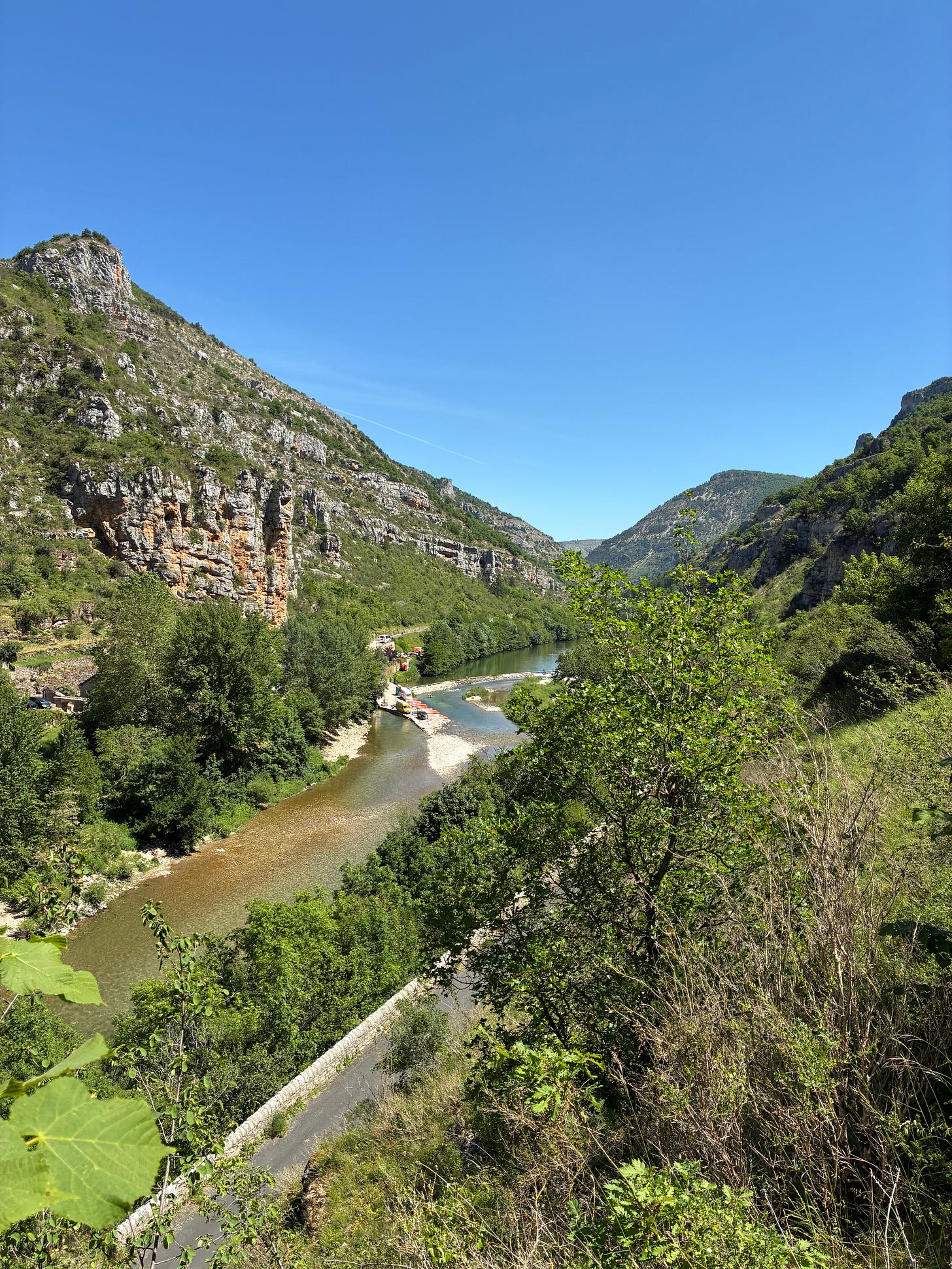
This past weekend the French celebrated the Ascension, a public holiday in France. For a secular country, they celebrate an extraordinary number of Catholic holidays. (Laïcité, the division between public and private (religious) spheres, is enshrined in the constitution). But without all the saints and Catholic milestones, what excuse would they have to take so much time off work?
My friend Cat, who lives in Paris, invited us to join her family for the four-day weekend in a campground in the Gorges de Tarn. She had reserved an adorable little mobile home with four bedrooms. The campground, like others all around France, included dozens of these compact, efficient little homes, as well as space for tents. Dwellings clustered under the shade of many trees alongside the river Tarn. There was a swimming pool, a water slide, a restaurant, and ducks.
Grateful and eager for a change of scene and for her company, we accepted.
While I could pack in my sleep and adore travel, my illness has made all transitions feel harder. I became so stressed and cranky getting ready for the trip that eventually I made even my eternally patient Tim cross with me. As I drove away from Sauve, I cried all the way to the first petrol station. But then I couldn’t continue. I would drown in it. I drove all the way to Millau, on twisty mountain roads past tiny stone villages and rivers. I kept my eyes on the road (the beautiful landscape is there to kill you, I remember our guide telling us as we prepared to cycle down the Camino de la Muerte in Bolivia. Do not for a minute take your eyes off the road). It was the first time I had driven since breaking my foot. We listened to episodes of NPR’s Wait Wait Don’t Tell Me (which we alternate with the BBC Radio Four’s News Quiz with Andy Zaltzman) for the entire trip, desperate for reasons to laugh. Comedy news shows are one of the few ways I can absorb news these days, although there is nothing funny about the news itself. My own situation selfishly tends to take the foreground over the catastrophe of the Trump regime and the destruction of the planet. But those things are never far from my thoughts.
I felt irritable all day, on edge. Furious, I realized. Furious. Furious that I would not be able to see who my daughter became. Furious not to be able to look forward to the future. Furious to have to abandon my husband. And that fury continually leaks out as irritability with people I love, despite my best efforts. Every second I feel at risk of every cell losing its grip on every other cell and flying apart in one spectacular firework.
French people, Cat often says, know how to vacation. They arrive at these campgrounds in large family groups. Even grown children return home to holiday with their parents. In these campgrounds, which exist all over France, families gather to cook paella and bouillabaisse outside over gas cans, grill in a communal grill, share wine and bread, sing together as the sun sets, and spend their days adventuring in the surrounding nature. It’s inexpensive, quality time. (You have to thoroughly clean your mobile home when you leave, as no maids will clean up after you—that’s one reason they’re cheap). The mobile homes allow people uncomfortable in tents or wanting a kitchen to enjoy a campground experience.
Because you have to take your own sheets, towels, olive oil, hand soap, dishwashing liquid, and salt and pepper, there are almost no foreigners in these campgrounds. Who would fly with all of these things? Thus, they are nearly exclusively French, with the exception of a few Dutch and Irish people willing to travel long distances. These are democratic societies. You don’t see the rich tourists you endure at hotels. There are no class divisions.
I loved that our little home had a deck. I’ve never had a deck! I did yoga every morning on the deck. We ate dinner outside on the deck every evening and breakfast out on the deck every morning. Cat and I walked into town to buy croissants and bread.
Our first day, we ventured into the glacial waters of the river. Cat and Theo dove in first, shaming me into following them. We didn’t stay submerged long, deciding to explore the pool. It was empty, apparently having closed at 7:30 p.m. But the gate was open, so we went in. We went down the slides, so fast the speed forced a mouthful of water down my throat, we swam, and no one stopped us. Eventually, emboldened no doubt by our presence, an Irish family joined us, and chatted with us in the pool. I can listen to Irish people talk forever.
That first evening, Tim received a text from his cousin Ben, who by pure coincidence was an hour away, in the midst of a cycling trip across the country. So Tim drove to meet him. I was so glad he got to spend time with a family member, a rare event.
Our first morning, we hiked near Malène, a beautiful stone village an hour up the river. We visited a chapel carved into cave and a statue of the Virgin Mary. The town is surrounded by troglodyte villages built into the rocks thousands of years ago. We had to head back before the others, as I had a therapy appointment and Tim had to take Theo to get a passport photo. We had just realized, in a panic, that her US passport expired in January—and she needs to get to camp this summer.
After a sobering therapy session, I headed to the pool to distract myself from grief. As I was swimming leisurely laps in a nearly empty pool, a small French boy tapped me on the shoulder. “Will you race with us?” he asked. I was delighted! “Oui!” I said. He counted down, and he and his friend and I raced across the pool. It felt good to suddenly swim fast, to feel how strong I am. I easily won. Just because they’re small children didn’t mean I was going to let them win. Kids always know when you aren’t trying anyway. They didn’t seem bothered by my triumph. “Again?” they said. And so we continued to race each other up and down the pool for at least a half an hour. A small girl eventually joined us. One of the boys, who were eight and nine years old, kept cheating by getting out of the pool and racing down the side to jump in at the end. It was seriously the best thing to happen to me all day.
As we ate dinner, a group of older people, antique car enthusiasts, gathered in a vast circle to eat down the block. I, however, sank into misery and could not stay seated. Cat, who understands grief all too well, got up to come for a walk with me. “Has anyone brought you Lourdes water yet?” she asked. “People kept giving us Lourdes water.” Cat’s firstborn child, a boy named Robbie, died from cancer before his fifth birthday. It is his death, and the death of my friend Jeni’s 8-year-old daughter Kira, that keep me from believing there is any benevolence in the universe. If divine forces allow the painful deaths of these children, surely they are neither benevolent nor omnipotent. You can tell me a million times that god works in mysterious ways and I will only think, no way, no matter how mysterious, justifies the torture of children (and their parents). I also know that no god that would allow these children to die would spare me.
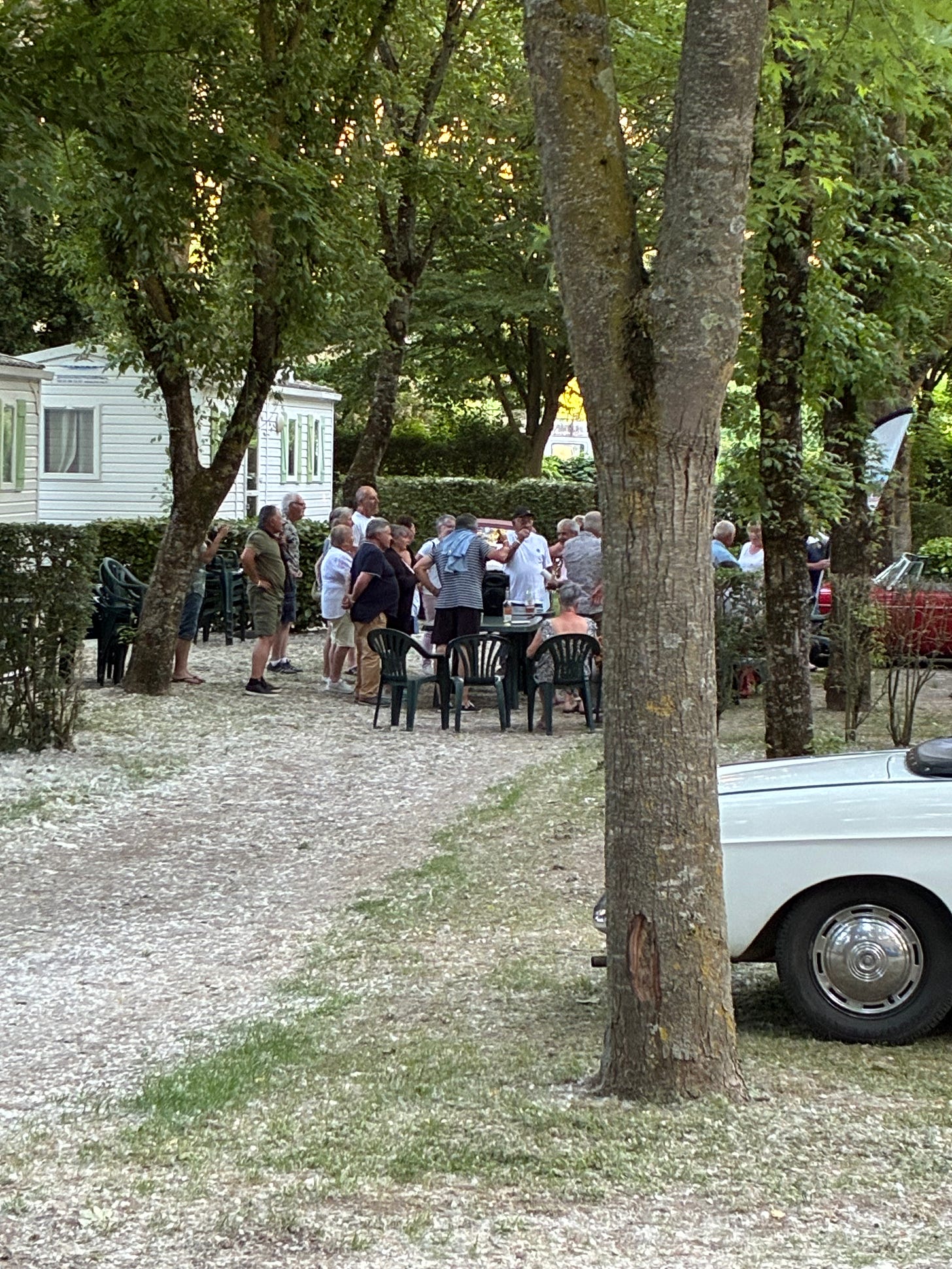
The next morning, I embarked on a Via Ferrata with Theo and Melanie, Cat’s older daughter, a year older than Theo. The Via Ferrata, for those unfamiliar with the term, is a combination of rock climbing and zip lines and ropes courses along the sides of cliffs and across valleys. (The girls and I had wanted to do parapente, a cross between parachuting and hangliding, but Cat ultimately decided not to let Melanie go. “If I lose another child, I’ll kill myself,” she said. This I understood. And decided that neither Theo nor I would go either. “Though it’s interesting to me that you won’t let Melanie parapente, but you’re fine with her climbing up the edge of a cliff.” I was teasing; dark humor is what we have left.
The course was challenging enough that there was no time to think about cancer. Adrenaline charged through me as we climbed. If there is an optimal time to do death-defying outdoor activities, it is when you have only months left to lose. Our group ranged in age from 6 to 60. It was good to see so many fit people my age.
In the afternoon, we visited the Maison des Cerises, which included a museum devoted to cherries and a vast cherry orchard. I played a cherry board game with enormous sponge dice with Cat’s younger daughter Jessica, who shares my passion for cherries. We were allowed to roam the rows of trees in the conservatory of cherry varieties, tasting them all. I had no idea there were so many kinds of cherries! My favorites were the moreau, by far, followed by the Napoleon and the conquette. We all ate cherries to sticky surfeit.
“They’re probably coated with pesticides,” said Cat.
“Once you’ve had three years of chemo, what’s a few more toxic chemicals?” I said.
Our last morning, Cat and family had to leave early, so we headed off on our own to do some canoeing/kayaking before heading home ourselves. We paddled 11 kilometers down a river, capsizing twice in the rapids. I panicked the first time, bumping against so many rocks I worried about re-injuring my foot. The second time, I could not stop myself from being pushed downstream. But we managed to regroup and paddle back to our car before the rain that had been threatening began in earnest. I was happy to have had the experience of watching Theo capably paddle herself through the water.
Before this, as everyone was frantically packing and cleaning the little mobile home, I asked Cat if we could talk privately for a few minutes before she left. I meant to talk with her earlier, but we were so busy with exciting activities and the bustle of family life. She put on her sandals and we began a circuit of the campground.
“I just wanted to ask you,” I began. I wasn’t feeling emotional, just matter of fact. “Once I am gone, I fear Tim and Theo will not reach out to people. Will you please keep in touch with them? Theo and Tim are very close, but there are things I talk about with her that—” And then abruptly, I was in tears.
Cat, as always, was calm and supportive. “Of course,” she said.
“Will you invite her to do things with you?”
“Of course! You don’t need to worry.”
She said more. I’m struggling to remember all the details of the conversation, because it is hard to force my brain to be in the moment in which I ask a dear friend to look after my child and husband after I die.
I remember Cat and me in our twenties, when we met in a Television Class for Print Majors at the Columbia University Graduate School of Journalism. We partnered with our friend Kathleen to make mini-documentaries about drag queen opera singers, doorwomen, and skateboarders. This was before our husbands, our children. Before we both moved abroad. Before we knew the untenable losses waiting for us, a decade or two down the road. Somehow, magically, she has stayed in my life, a steady presence, no matter what continent we’ve been exploring. Even in the midst of her deepest grief. Never did I dream I would one day be asking her what I was asking her.
“You know what it’s like to lose someone very dear to you,” I understated. “You will understand what Theo is going through.”
My hands are shaking on my keyboard and I don’t know how much I can bear to write about this. But I talked with my beloved cancer therapist Troy on Friday from our mobile home, and he suggested that I need to put in place support for Theo and Tim now. It’s time. So I am beginning that process.
So many of you have offered to be there for my family, and I cannot possibly convey how grateful I am for that. I just feel a need to warn you that they may not feel able to reach out to you. Don’t take that personally, it’s just how they are. So please, stalk my family. Reach out to them. Hold them close. Don’t let them be alone.





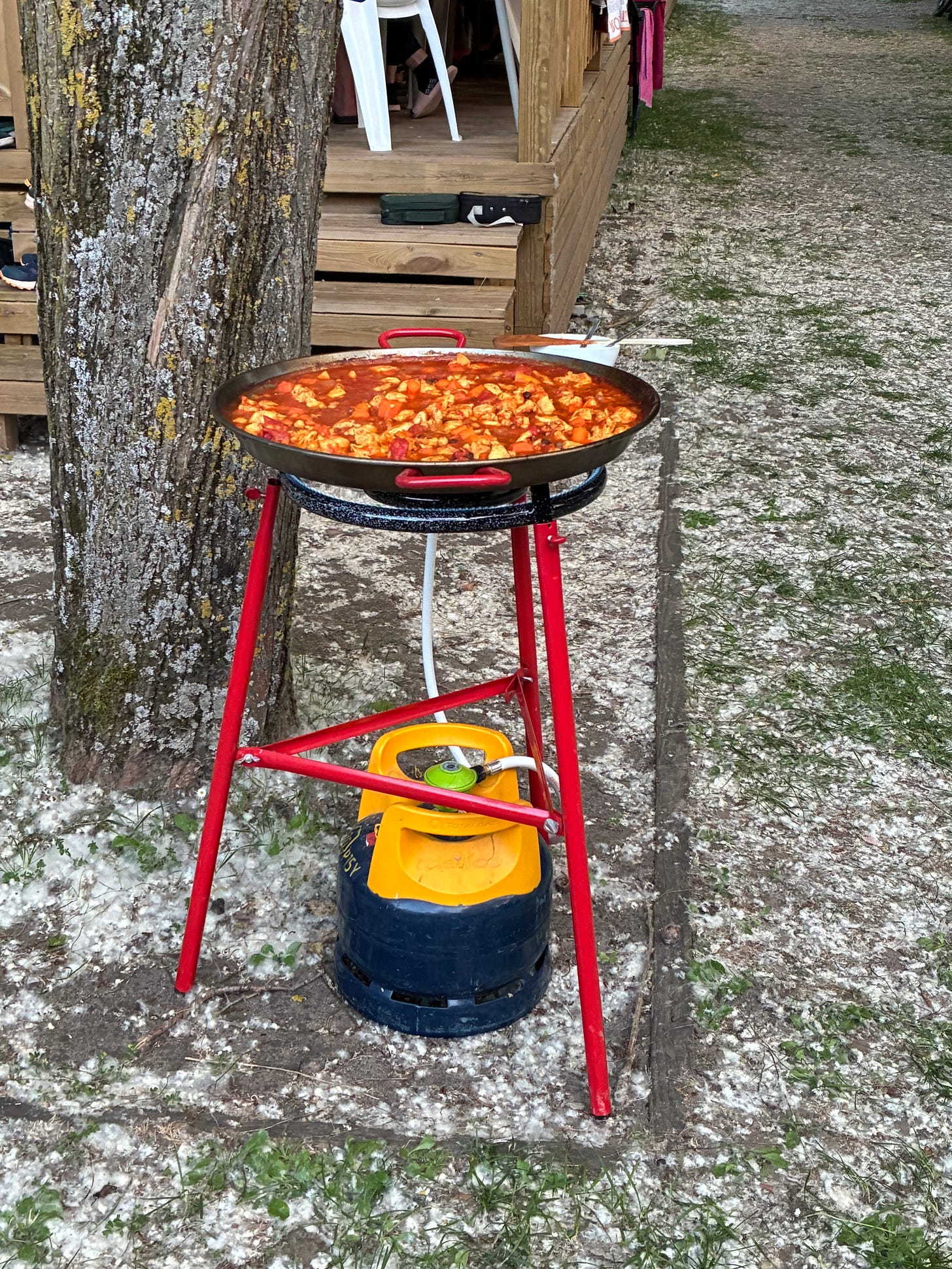
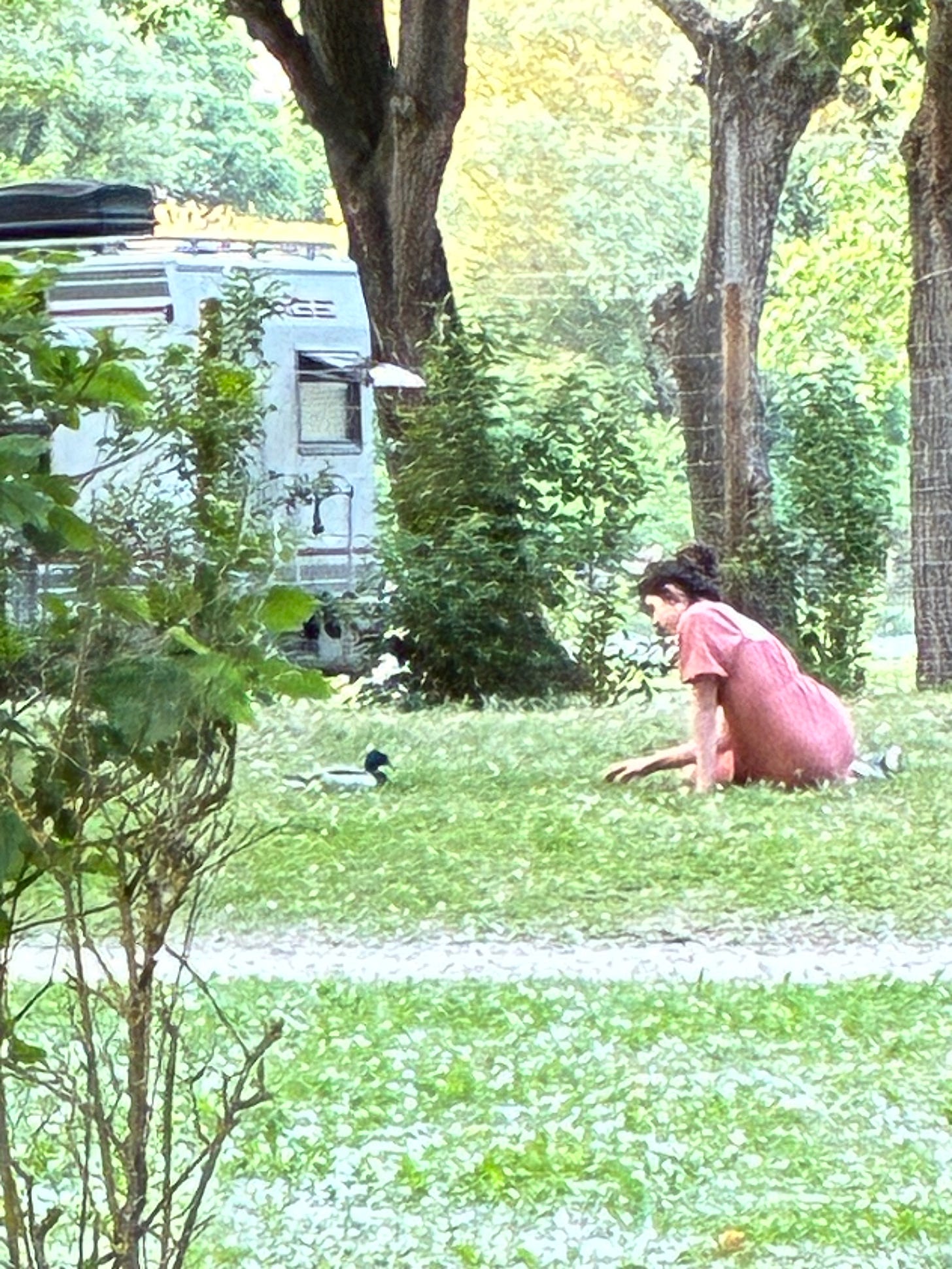
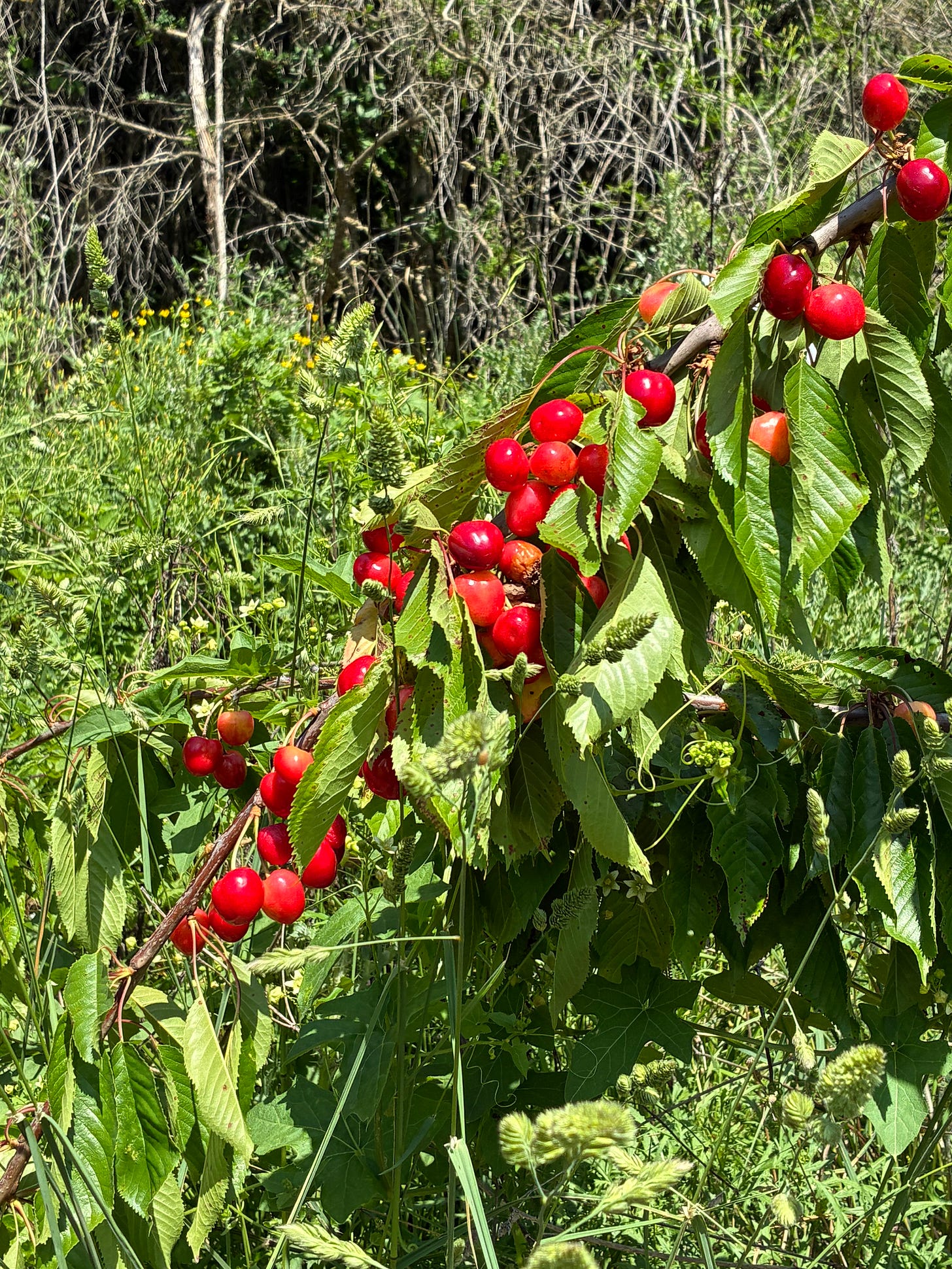
I was just at my 35th college reunion, where one of our classmates talked about the recent death of his wife, who had been in a long term relationship with lymphoma. He said that after she was given her Most Unfortunate Diagnosis, and they had cried for a while, she said to him, "We'll know when I'm dying. Until then, I'm living." You're doing a brilliant job of that as well. Heaps of love to you and the Ts!
Jennifer— thanks for your beautiful writing, I am amazed how you are able to wring out so much joy and love and adventure from every experience. It sounds like you have created a loving network for Tim and Theo. I am thinking of you and sending love.